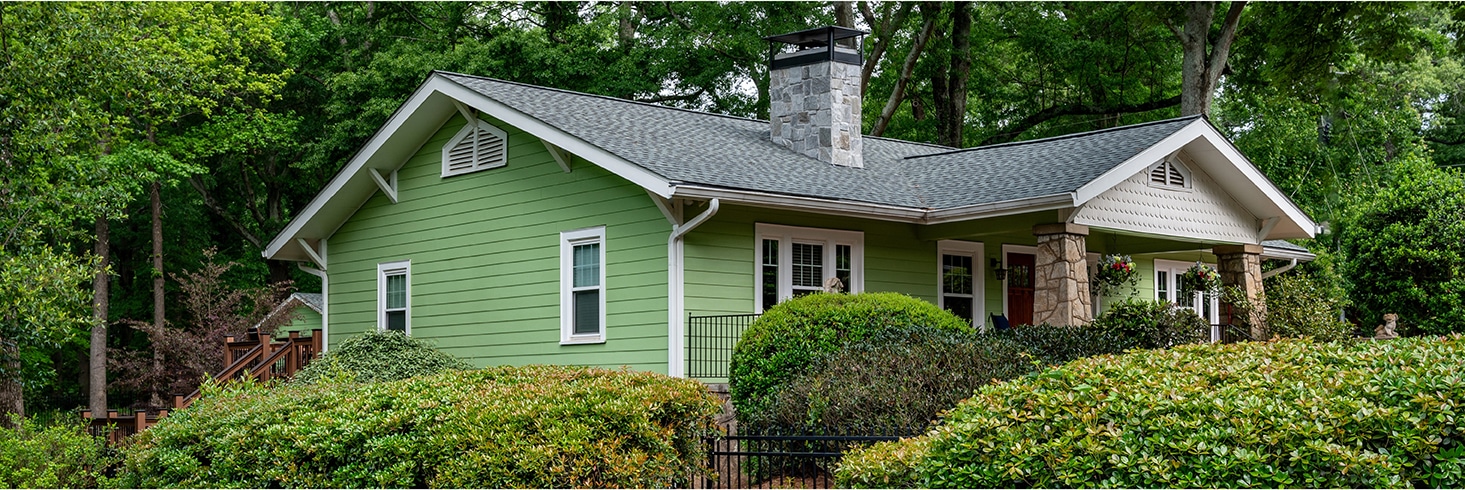
The Real Cost of Owning a Home in Michigan
If you are a first-time homebuyer, it’s important to fully understand what home ownership will actually cost you beyond that selling price you settled on. Because let’s be real — there are a lot of other expenses that comprise the cost of owning your own home.
The Monthly Costs of Owning a Home
Buying a house is considered one of the biggest financial commitments you can make, and that’s because it’s something you never stop paying for in some form or fashion. Even after you’ve paid off your mortgage, there are some monthly expenses that are never-ending to keep in mind such as:
Utilities Costs
In Michigan, homeowners typically spend around $250 each monthly for utilities, depending on the area they live in. Some rural areas won’t have water bills while suburban and urban homes often will. On the flip side, internet could end up being pricier out in farm country than it is in the cities. Here are the average costs for utilities in Michigan:
- Energy: $117.57
- Water: $29
- Internet: $30
- Natural Gas: $74
Maintenance & Repairs
One of the biggest cases of shell-shock that first-time homebuyers experience when they transition from renting to homeownership is the responsibility to take care of and pay for home maintenance and repairs. Although Michigan is below average when it comes to home maintenance costs, it’s still important to keep an emergency fund for things like your appliances, water heater, and septic tank if you have one. Plus, some Michigan homeowners hire out for lawn services and snow removal. Generally speaking, it’s a good idea to budget 1-2% of your home’s value for annual maintenance costs.
Annual Costs of Owning a Home
Just as there are monthly expenses that come along with home ownership, there are also annual home expenses. Conveniently, many of these are rolled into mortgage payments, but it’s important to know what financial obligations will come about each year as part of the cost of owning a home.
Property Taxes
Property taxes differ depending on the county you live in, typically ranging from 0.9% (Leelanau County) to 5.6% (Wayne County). Property tax bills are usually based on the assessed value of the property and the local tax rate. The assessed value is determined by the local tax assessor’s office and may not necessarily reflect the current market value of the property. These taxes are often part of an escrow account, especially for homeowners with a mortgage. An escrow account is set up by the lender to hold funds for property-related expenses such as property taxes and home owners insurance. Property taxes differ depending on the county you live in and what school district benefits partially from the home owners property taxes. There are 2 due dates to keep in mind, July 1 for the summer bill and Dec 1 for the winter bill.
If you have an escrow account set up with your mortgage payment, with each payment, a portion of it goes toward your annual property taxes into that escrow account. When your property taxes are due, your lender uses the funds in the escrow account to pay them on your behalf. This way, you don’t have to worry about saving up for a large lump sum payment when your property taxes are due. You can also use an online tool to estimate your taxes. Move to paragraph above, after “partially from the home owners property taxes…”
Home Insurance
Homeowners insurance is a crucial expense that protects your home and possessions from unforeseen events such as fire, theft, or natural disasters. The cost of homeowners insurance can vary based on factors such as the location and value of your home, the coverage limits and deductibles you choose, and your insurance provider.
For many homeowners with a mortgage, the cost of homeowners insurance is rolled into their monthly mortgage payments through an escrow account. Similar to property taxes, a portion of your annual homeowners insurance premium is added to your monthly mortgage payment, and the lender uses the escrow account to pay the insurance premium when it is due. This helps ensure that your insurance is always up to date and that you are protected in the event of a covered loss.
HOA
HOA (Homeowners Association) expenses are fees paid by homeowners in a planned community or condominium complex for the maintenance and upkeep of common areas and amenities. These fees can vary widely depending on the location, size, and amenities of the community. HOA expenses typically cover costs such as landscaping, snow removal, trash collection, maintenance of common areas (like pools or gyms), and sometimes utilities or insurance for common areas. These fees are often paid annually, but can also be set up for quarterly payments.
The One-Time Costs of Buying a Home
Closing costs are the one-time fees and expenses that buyers need to pay when purchasing a home. These costs typically range from 2% to 5% of the home’s purchase price and can include fees for loan origination, appraisal, title insurance, recording fees, and attorney fees, among others. Closing costs also include prepaid items such as property taxes, homeowners insurance, and prepaid interest. The exact amount of closing costs can vary depending on the location of the property, the purchase price, and the lender’s requirements.
Hidden Costs of Owning a Home in Michigan
We hate to be the one to break it to first-time homebuyers, but there are also some hidden costs that come along with home ownership including a nagging and sudden interest in home improvement stores and garage sales (it’s important to make a house a home, right?), commute times coupled with fuel costs, pest prevention, and, of course, aesthetic home improvements.
FAQ’s
Is it expensive to live in Michigan?
Looking at Michigan’s cost of living, housing is 35% cheaper in Michigan compared to the national average and the overall cost to live in the state is 8.5% cheaper.
Where is the cheapest place to live in Michigan?
Rural areas in Michigan typically offer a more affordable path to home ownership, plus they open up the possibility to USDA loans.
How much does it cost to maintain a home in Michigan?
Generally, you should plan to spend 1-2% of the home’s value annually on home maintenance.
What is the most expensive thing to fix in a house?
Not all home repairs will break the bank, but things like foundation and roofs are some of the most costly repairs homeowners can encounter.
Are groceries more expensive in Michigan?
The cost of groceries is a pain point for many people, especially those who are sticking to a strict budget. In Michigan, groceries are 4% cheaper on average.
The cost of owning a home extends further than just the purchase price

